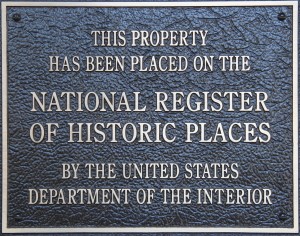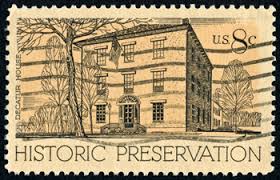National Historic Preservation Act NHPA
What Is It?
The National Historic Preservation Act (NHPA) was signed into law in 1966 by Lyndon B. Johnson and is the nation's primary historic preservation law.
Congress agreed that "the spirit and direction of the Nation are founded upon and reflected in its historic heritage" and that "the historic and cultural foundations of the Nation should be preserved as a living part of our community life and development in order to give a sense of orientation to the American people." Because historic properties significant to the Nation’s heritage are being lost or substantially altered, often inadvertently, with increasing frequency; the preservation of this irreplaceable heritage is in the public interest so that its vital legacy of cultural, educational, aesthetic, inspirational, economic, and energy benefits will be maintained and enriched for future generations of Americans."
As technologies and methods improve for all fields and disciplines, not only do we have increased expansion and development but we also have better means of identifying the past and by improving our planning for preservation through the execution of federal and federally assisted projects will benefit everyone.
What Is In It?
Section 101
This section created the National Register of Historic Places, the National Historic Landmarks program, the State Historic preservation programs and the Tribal Historic preservation programs.Section 106
This section makes the consideration of historic resources of specific projects the responsibility of the federal agency implementing or funding them.Section 110
This section makes a federal agency responsible for active historic stewardship.Sections 201 - 214
These sections create and outline the duties of the Advisory Council on Historic Preservation.Section 301
This section establishes all the defnitions used throughout the NHPA.Section 304
This section establishes the confidentiality of information regarding historic properties such as archaeological sites and traditional cultural properties for the purposes of their preservation from looting as well as keeping private landowner information confidential.National Register of Historic Places
The National Register of Historic Places is the official list of the Nation's historic places worthy of preservation. The National Park Service's National Register of Historic Places is part of a national program to coordinate and support public and private efforts to identify, evaluate, and protect America's historic and archeological resources.
Almost every county in the United States has at least one place listed in the National Register and listing in the National Register is the first step towards eligibility for National Park Service-administered federal preservation tax credits, leveraging more than $45 billion in private investment and National Park Service grant programs like Save America's Treasures and Preserve America.
More Information
This will direct you to the More Information section for this NHPA that lists links to many sources for further information.
Top

